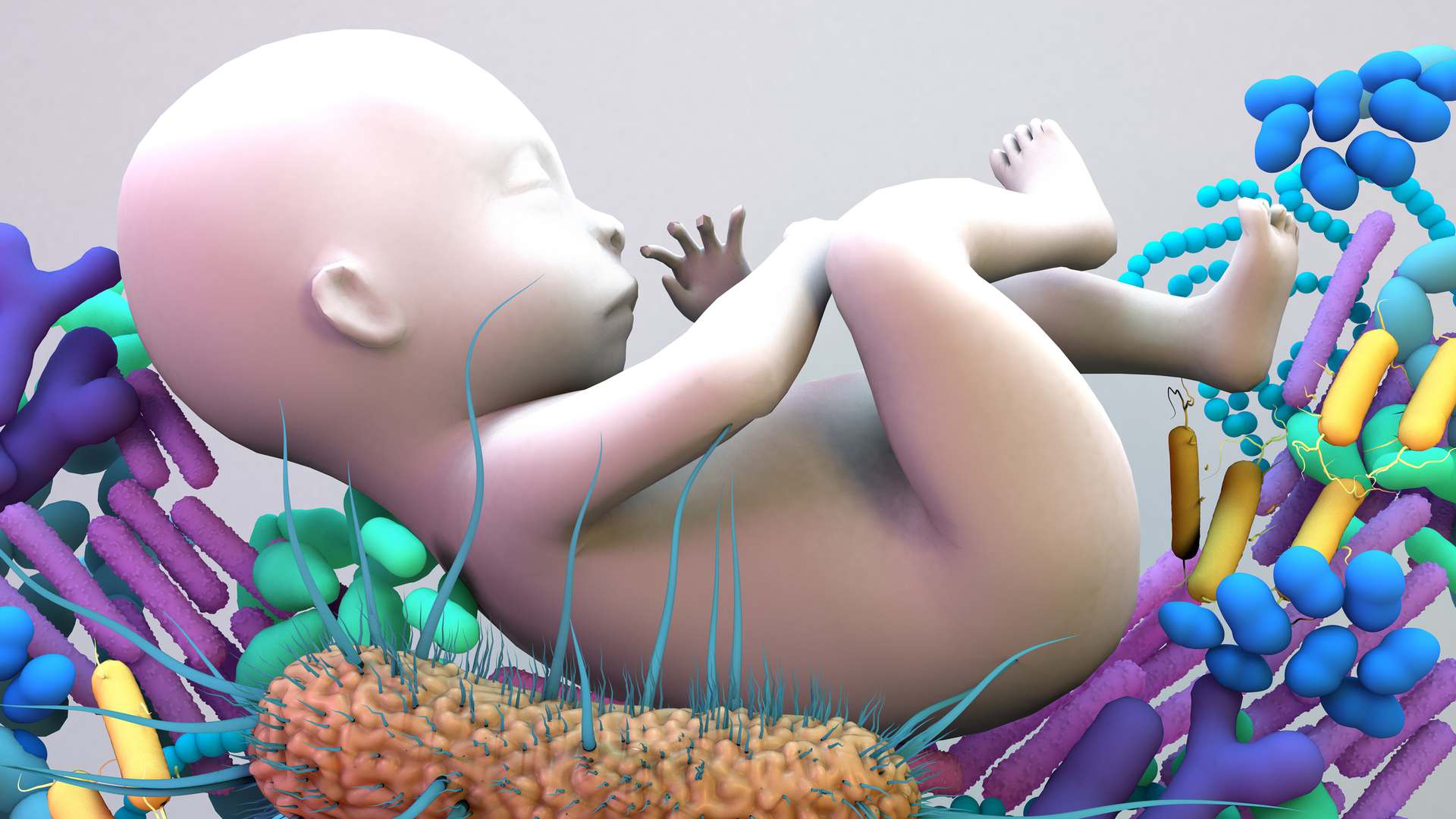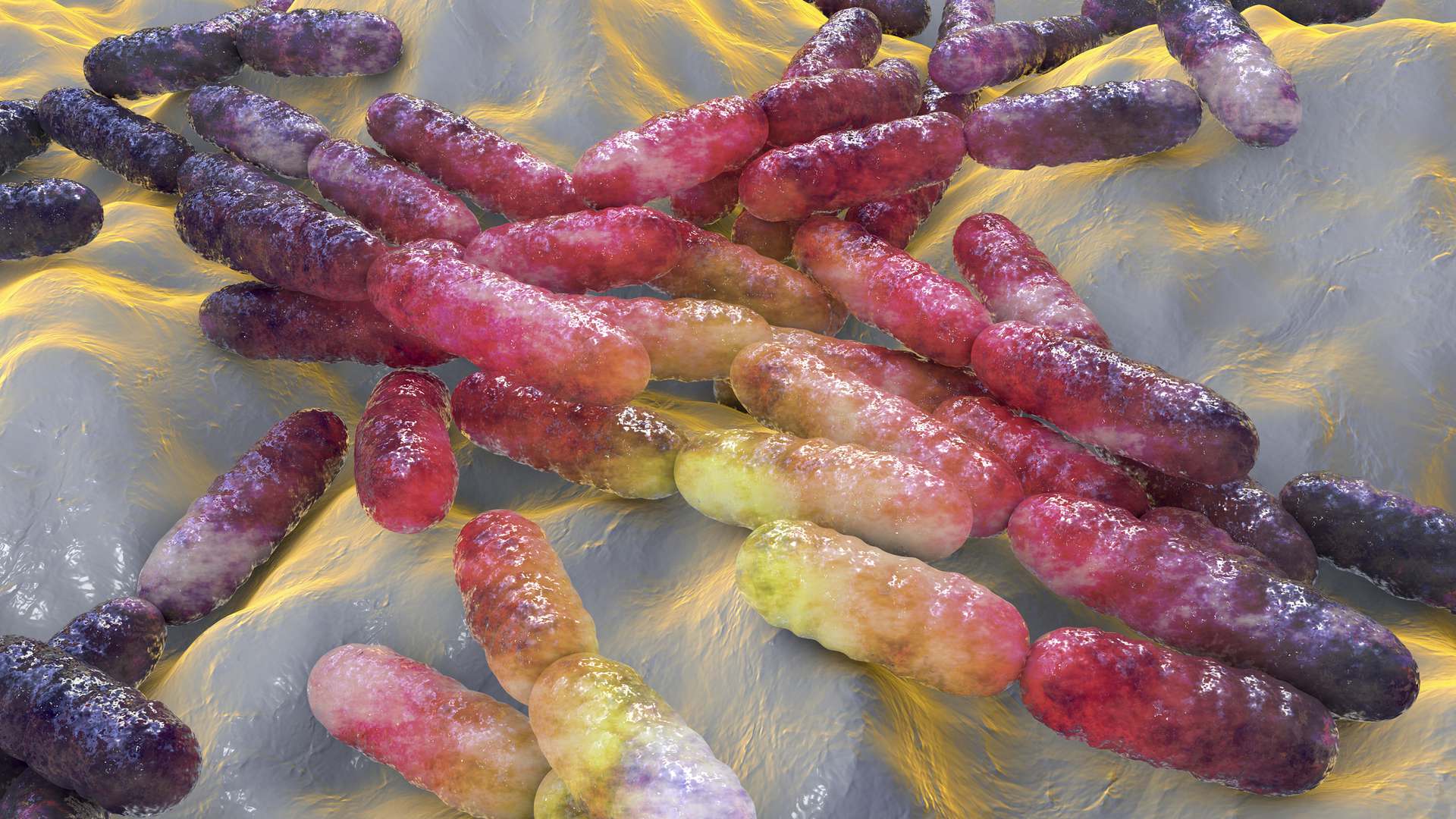The microbiome in me. Say hello to your new best friend.
Microorganisms are the most successful, ubiquitous, and diverse organisms on the planet

Principal Strategic Opportunities Manager

Microorganisms are the most successful, ubiquitous, and diverse organisms on the planet, and we are at a turning point in understanding the relationship between human health and the microbes that live with us. The human microbiome is a new frontier in health and wellbeing, poised to revolutionise medicine and change the way we think about disease.
The human-microbiome superorganism
You are not alone. The human body is home to trillions of microorganisms, consisting of bacteria, fungi, protozoa and viruses. Collectively these organisms are referred to as the microbiota, and the collection of genomes from these microorganisms is referred to as the microbiome. The human microbiota has coevolved with us and we have a synergistic relationship with it, relying on our microbial guests for many functions such as digesting complex polysaccharides in plants and providing protection against invading pathogens. Microorganisms inhabit many parts of the human body including the skin, mouth, and gut. Each of these microbiomes are distinct depending on the location in the body.

Microbiome therapeutics: a new chapter in personalised medicine
A major focus of human microbiome research has been on the gut microbiome, which represents the largest and most diverse microbial community in the body. which are actively expressed and affect digestion, drug metabolism and immune response, and can also have an impact on remote organs through microbial metabolites and translocation of microorganisms. The microbiome is a vital part of what makes us healthy, and when the balance is disturbed this can contribute to a range of diseases and conditions including cancer, diabetes, inflammatory bowel disease, autism, anxiety and obesity and chronic stress.
As our understanding of the human microbiome and its relationship with health and disease continues to advance exciting opportunities are emerging for microbiome-based medicines. Microbiome therapeutics help to restore health by interacting with the existing microbiota. There are several approaches to microbiome modulation including:
• Live bacterial products (LBPs) which can be a single strain or a mixture of different bacterial strains or species
• Products derived from microbes including metabolites, peptides (like proteins but smaller and less complex) and spores
• Viral products including therapeutic viruses and bacteriophage (viruses that infect bacteria)
A growing number of clinical trials can be seen in the field with several companies receiving phase III data in 2020, for example, positive results were reported for Seres Therapeutics’ SER 109 (a consortia of Firmicute spores) and also Rebiotix RBX2660 (a broad spectrum microbiota suspension) for treating recurrent Clostridium difficile infection. There is increasing interest in microbiome therapeutics from large pharma companies, for example earlier this year Pfizer invested in Vedanta Biosciences who are developing rationally designed microbial consortia for treating inflammatory bowel disease, and GSK entered into an agreement with Eligo Bioscience to advance treatment for acne using a pioneering CRISPR-based therapeutic for strain specific microbiome modulation.

Microbiome therapeutics for enhancing response to cancer immunotherapies
Our immune system works hard to protect us against invading pathogens and can also be recruited to fight mutated cells that have the potential to cause cancer. Immune cells have surface receptors that can detect cancer cells. When an immune cell discovers a cancer cell it releases a powerful ‘punch’ of cytotoxic proteins, sealing the fate of the cancer cell. Sometimes cancer cells learn to evade immune cells, and one way they do this is by interacting with an immune cell regulator called a checkpoint, preventing the immune cell from doing its job.
Immunotherapy drugs block the checkpoint, releasing the brakes on the immune response so that the cancer cells can be fought. Despite the tremendous promise of these immunotherapies unfortunately, not all patients respond and experience little or no benefit from these treatments, for example, improved efficacy of anti-PD1 treatment with an increased antitumor T cell response was observed in mice that had received a faecal microbiota transplant from responding patients.
There are exciting opportunities for microbiome-based co-therapeutics to influence patient response to immunotherapies, for example Genome & Company’s GEN-001 live microbiome therapeutic is currently in clinical trials as a combination treatment for treating patients with solid tumours together with Merck KGaA/Pfizer’s anti-PD-L1 checkpoint inhibitor Avelumab. GEN-001 is comprised of a single strain bacterium isolated from the gut of healthy human volunteers and works by activating the immune system’s dendritic cells, macrophages and T cell response.

The microbiome as an ally in the fight against antimicrobial resistance
The emergence and spread of antimicrobial resistance (AMR) has the potential to become a problem of catastrophic scale for human and animal health, threatening to take us back to a pre-antibiotic era of clinical care and potentially the end of modern medicine as we know it. The AMR crisis is driving the search for damage limiting alternatives to antibiotics, and the microbiome is a reservoir of potential solutions such as bacteriocins and bacteriophage (phage). Bacteriocins are antimicrobial peptides that are produced by bacteria to help them compete for resources, and phage are viruses that infect and kill bacteria. Both bacteriocins and phage have a number of attractive benefits including generally narrow specificity (so avoiding the collateral damage that can be a result of broad-spectrum antibiotics) and efficacy against both antibiotic-sensitive and antibiotic-resistant bacteria.
The microbiome and our furry friends
Just as with humans an animal’s microbiome plays a clear role in health and disease, and the welfare of animals can be improved through supporting the maintenance of a healthy microbiome. Microbiome treatments can help to support the health and welfare of farmed animals, help to reduce antibiotic use and lower environmental impact (for example, reduced methane emissions). Animal friendly probiotic treatments can help our pets with improved quality of life and enhance owner experience and companionship, for example, Nestle have a Bifidobacterium longum based probiotic supplement to help with calming anxious dogs that demonstrates a statistically significant improvement in day-to-day anxious behaviour and also a reduced level of the stress hormone cortisol .
So remember...
…you are a superorganism! Go forth and learn to love your inner ecosystem.
Enjoyed this article? Keep reading more expert insights...
CPI ensures that great inventions gets the best opportunity to become a successfully marketed product or process. We provide industry-relevant expertise and assets, supporting proof of concept and scale up services for the development of your innovative products and processes.